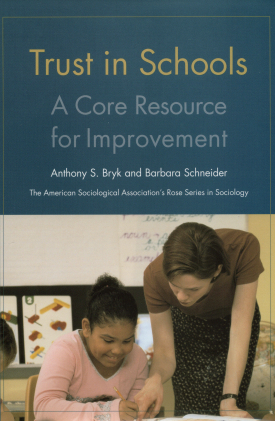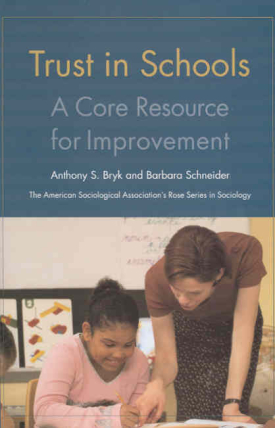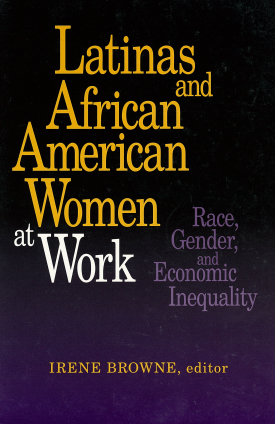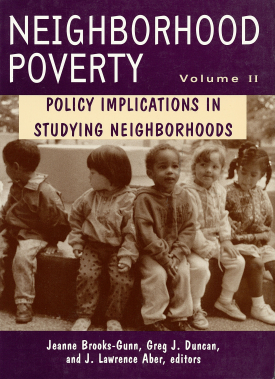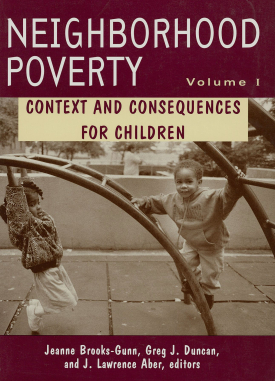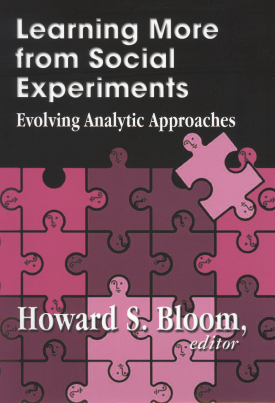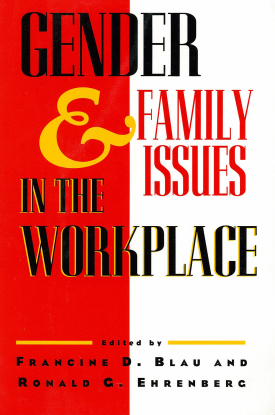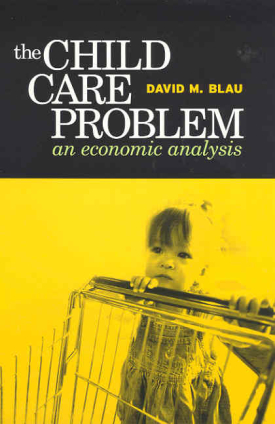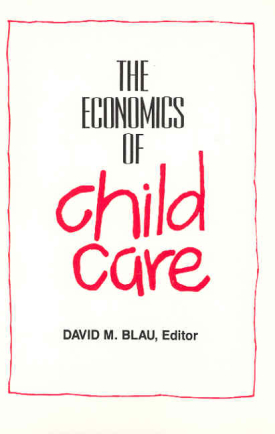Perhaps the most alarming phenomenon in American cities has been the transformation of many neighborhoods into isolated ghettos where poverty is the norm and violent crime, drug use, out-of-wedlock births, and soaring school dropout rates are rampant. Public concern over these destitute areas has focused on their most vulnerable inhabitants—children and adolescents. How profoundly does neighborhood poverty endanger their well-being and development? Is the influence of neighborhood more powerful than that of the family? Neighborhood Poverty: Context and Consequences for Children approaches these questions with an insightful and wide-ranging investigation into the effect of community poverty on children's physical health, cognitive and verbal abilities, educational attainment, and social adjustment.
This two-volume set offers the most current research and analysis from experts in the fields of child development, social psychology, sociology and economics. Drawing from national and city-based sources, Volume I reports the empirical evidence concerning the relationship between children and community. As the essays demonstrate, poverty entails a host of problems that affects the quality of educational, recreational, and child care services. Poor neighborhoods usually share other negative features—particularly racial segregation and a preponderance of single mother families—that may adversely affect children. Yet children are not equally susceptible to the pitfalls of deprived communities. Neighborhood has different effects depending on a child's age, race, and gender, while parenting techniques and a family's degree of community involvement also serve as mitigating factors.
Volume II incorporates empirical data on neighborhood poverty into discussions of policy and program development. The contributors point to promising community initiatives and suggest methods to strengthen neighborhood-based service programs for children. Several essays analyze the conceptual and methodological issues surrounding the measurement of neighborhood characteristics. These essays focus on the need to expand scientific insight into urban poverty by drawing on broader pools of ethnographic, epidemiological, and quantitative data. Volume II explores the possibilities for a richer and more well-rounded understanding of neighborhood and poverty issues.
To grasp the human cost of poverty, we must clearly understand how living in distressed neighborhoods impairs children's ability to function at every level. Neighborhood Poverty explores the multiple and complex paths between community, family, and childhood development. These two volumes provide and indispensible guide for social policy and demonstrate the power of interdisciplinary social science to probe complex social issues.
JEANNE BROOKS-GUNN is Virginia and Leonard Marx Professor of Child Development at Teachers College, Columbia University. She is also director of the Center for Children and Families and founder of the Adolescent Study Program at Teachers College.
GREG J. DUNCAN is professor of education and social policy and a faculty associate in the Institute for Policy Research at Northwestern University. He is also faculty affiliate of the Northwestern University/University of Chicago Joint Center for Poverty Research.
J. LAWRENCE ABER is director of the National Center for Children in Poverty at the Columbia School of Public Health, Columbia University.
CONTRIBUTORS: Daniel Aaronson, LaRue Allen, Prudence Brown, Linda M. Burton, P. Lindsay Chase-Lansdale, Elizabeth Clifford, Steven P. Cole, James P. Connell, Thomas D. Cook, Claudia J. Coulton, Warren E. Crichlow, Nancy Darling, Serdar M. Degirmencioglu, Frank M. Furstenberg Jr., Martha A. Gephart, Rachel A Gordon, Bonnie L. Halpern-Felsher, Mary Elizabeth Hughes, Robin L. Jarrett, Stephanie M. Jones, Sheila B. Kamerman, Pamela K. Klebanov, Tedd Jay Kochman, Jill E. Korbin, Jeffrey S. Lehman, Tama Leventhal, Paul A. McDermott, Jeffrey D. Morenoff, Townsand Price-Spratlen, Harold A. Richman, Robert J. Sampson, Edward Seidman, Shobha C. Shagle, Timothy M. Smeeding, Margaret Beale Spencer, Laurence Steinberg, Dena Phillips Swanson, Peter A. Usinger.


